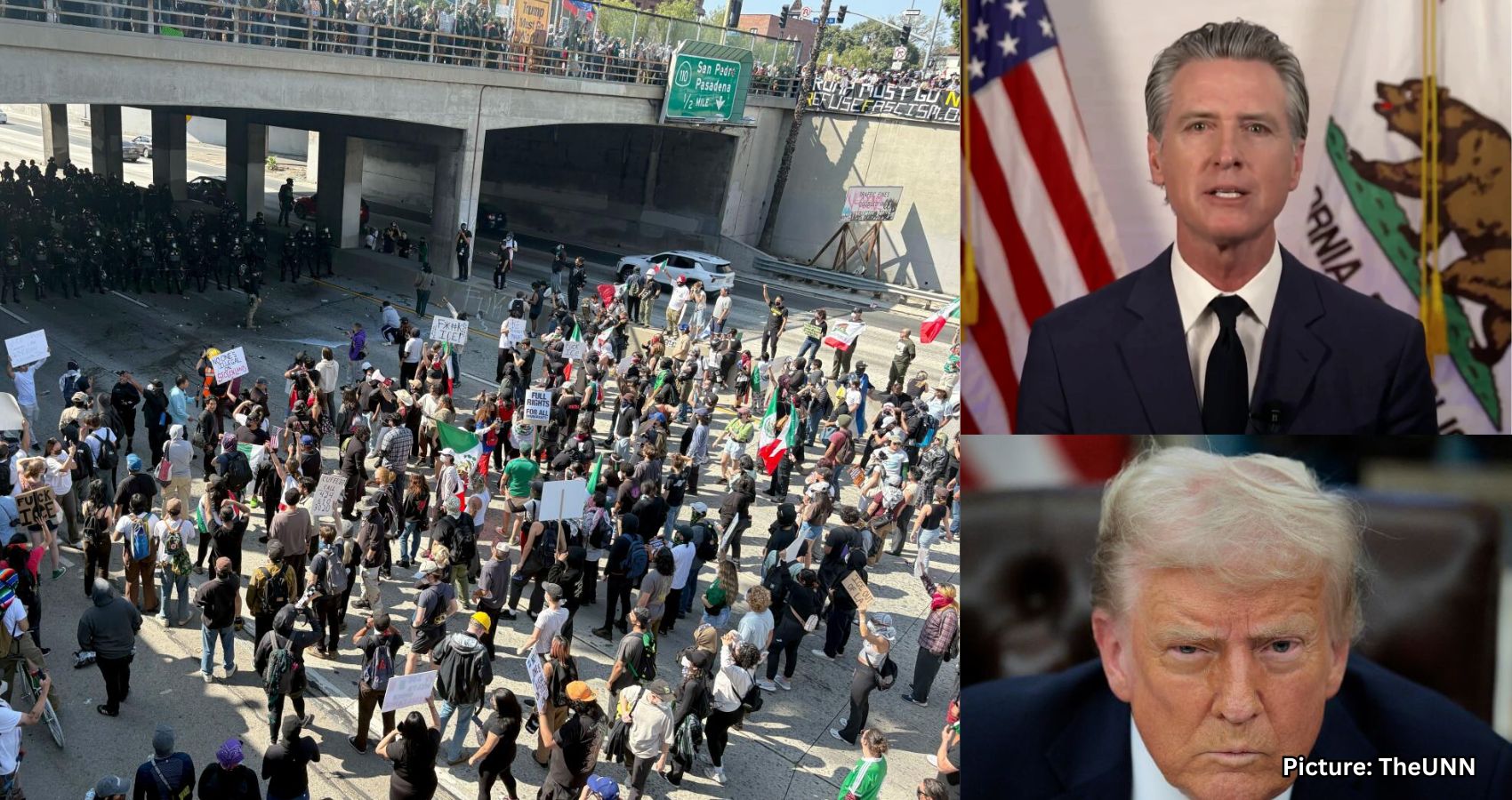The Department of Homeland Security has criticized Illinois Governor J.B. Pritzker for his lack of response to an anti-ICE protest that escalated into chaos, prompting federal authorities to use tear gas.
The Department of Homeland Security (DHS) has publicly criticized Illinois Governor J.B. Pritzker for his inaction during a chaotic anti-ICE protest in Broadview, a suburb of Chicago. The protest forced federal authorities to deploy tear gas and other non-lethal measures to regain control of the situation.
In a statement released on Monday, DHS claimed that local police, operating under Pritzker’s sanctuary jurisdiction, “refused to answer multiple calls for assistance.” This assertion follows reports from Fox News Digital detailing clashes between federal officials and protesters who were obstructing ICE vehicles attempting to enter and exit a processing facility.
DHS characterized the protesters as “rioters,” stating that 16 individuals have been arrested in connection with the incident. The agency alleged that the rioters engaged in various violent actions, including obstructing law enforcement, throwing tear gas canisters, rocks, bottles, and fireworks, slashing the tires of vehicles, blocking facility entrances, and trespassing on private property. Additionally, it was reported that some rioters assaulted law enforcement officials during the unrest.
In response, Matt Hill, a spokesperson for Governor Pritzker, refuted the claims made by DHS. He told Fox News Digital that it is “completely false to suggest the state or local municipalities have been obstructing federal officials.” Hill emphasized that the state had not received multiple requests for assistance from the federal government and reminded DHS of the importance of coordinating with local law enforcement to ensure public safety.
“Governor Pritzker has been clear that violence is unacceptable and everyone needs to follow the law, which includes federal agents respecting constitutional rights to peaceful protest,” Hill added.
Hill also cautioned the media to approach reports from the Trump administration with skepticism, citing a “record of lies, lack of transparency, and failure to coordinate with the state and local law enforcement.”
The DHS statement highlighted that the protest disrupted an operation targeting individuals with serious criminal backgrounds. Among those being processed at the facility were individuals with convictions for drug trafficking, domestic abuse, driving under the influence (DUI), and assault.
One of the individuals mentioned by DHS was Andres Ventura-Uvaldo, a Mexican national with a history of felony DUI and domestic violence arrests. Another, Alberto Algeria Barron, had been previously removed from the U.S. in 2014 and had two convictions for domestic battery. Additionally, Erwin Jose Roa-Mustafa, a Dominican national, was being processed after pleading guilty to federal charges related to drug distribution, including fentanyl.
Other individuals included Ibis Alberto Testa Nunez, a Mexican national with prior arrests for cocaine possession, and Salvador Alcantar-Alcantar, who had been arrested for DUI, trespassing, and assault. Carlos Eduardo Chavez-Cardenas from Bolivia had a history of DUI and drug possession convictions.
DHS Assistant Secretary Tricia McLaughlin condemned the actions of the protesters, stating, “These heinous criminals, including domestic abusers, drug traffickers, violent offenders, and drunk drivers are some of the illegal aliens being held in the ICE Broadview Processing Center.” She further remarked that the rioters were “fighting to keep rapists, murderers, and other violent criminals loose on Illinois streets.” McLaughlin urged the public to recognize the efforts of ICE officers who work daily to enhance community safety.
This incident comes amid reports from DHS indicating that ICE officials are experiencing a more than 1,000 percent increase in assaults while conducting operations across Illinois.
According to Fox News Digital, the situation underscores the ongoing tensions between federal immigration enforcement and local jurisdictions that adopt sanctuary policies.
Source: Original article

